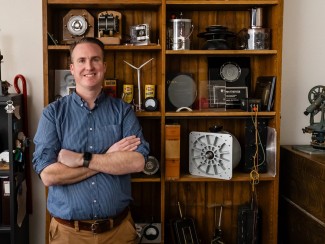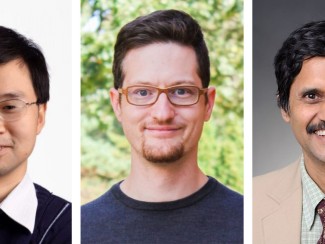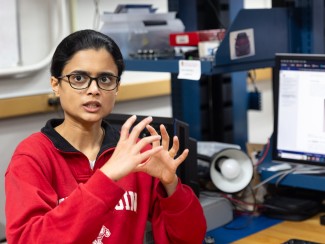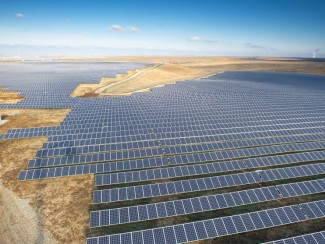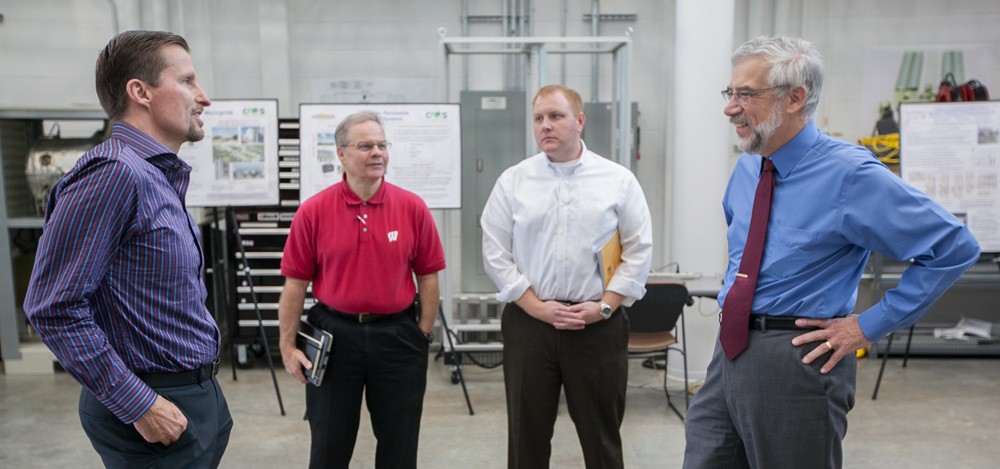
On September 6, 2013 SunPower, Inc. CEO and University of Wisconsin—Madison alumnus Tom Werner visited campus to share his knowledge of solar energy and business with students, faculty and the public.
“Apparently they told you there was something free here,” Werner said to a packed Union South Marquee theater. “And don’t worry, there is.” Werner was referencing not only his unique perspective on the solar industry, but free fleece vests awarded to people unafraid to ask questions—a skill he claimed has been invaluable throughout his career.
Werner holds a bachelor’s degree in industrial engineering from the UW—Madison and jokingly offered current students this advice: “Get a job. And maybe even get a job with SunPower.”
SunPower, Inc. manufactures solar cells that turn sunlight into energy more efficiently than any other manufacturer in the world. Founded by a Stanford professor in 1985, the company set out to build concentrated solar systems, which use mirrors to reflect and magnify sunlight onto solar cells.
“The problem was that despite having a really good solar cell and a great system, it only came in one size—big. Therefore it had to be sold to utilities, but in 1985 no utilities were interested in solar and so there was no market,” said Werner.
Currently Germany has the world’s largest solar market and it gets the same amount of sunlight as Wisconsin, so why has solar succeeded there, but not here? The answer, simply, is policy and public opinion.
Tom Werner
Learning from SunPower's early history, Werner emphasized that if you want solar energy to not just survive but succeed by gaining widespread use and public acceptance, you have to get costs down and make it easy and predictable to acquire.
According to Werner there are four “too common” myths about solar energy: that it costs too much, that there aren’t any jobs, that the market is propped up by incentives, and that there is too much of it for power grids to handle. But Werner contended that solar energy already competes with non-renewable sources in some parts of the United States, that all forms of energy are subsidized in various ways, and that grid technology is getting better at controlling and managing the flow of electricity to prevent disruptions.
Werner believes solar energy is here to stay and that it could shake up the energy industry in the near future. He cited Germany as an example of where people and government have successfully come together to support solar energy.
“Currently Germany has the world’s largest solar market and it gets the same amount of sunlight as Wisconsin,” Werner said. “So why has solar succeeded there, but not here? The answer, simply, is policy and public opinion.”
If you want to learn more about the future of solar energy from Tom Werner listen to this Sound Engineering podcast prepared by the UW-Madison College of Engineering.

